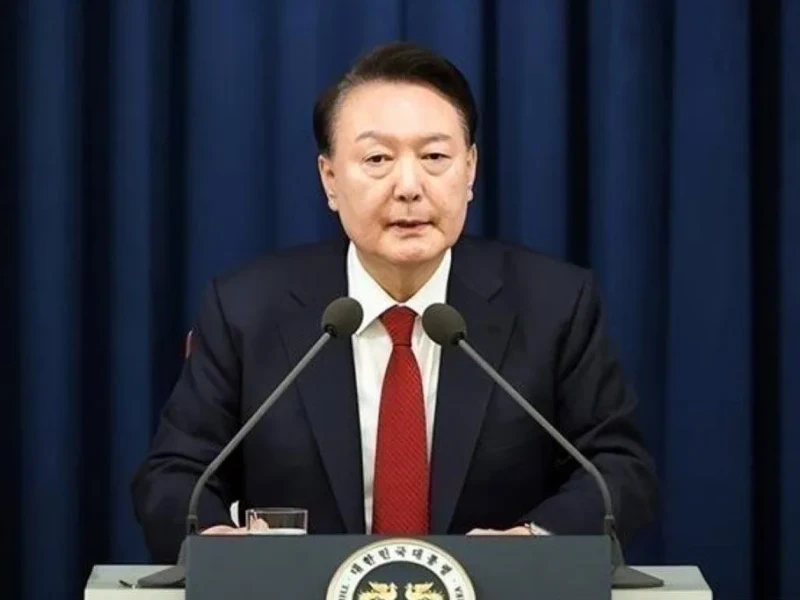
IndependentReport – The political landscape in South Korea has been shaken as former President Yoon Suk Yeol faces trial on insurrection charges. The case, which has gripped the nation, revolves around Yoon’s controversial declaration of martial law in December 2024. His actions led to a swift response from the National Assembly, which impeached him, triggering legal proceedings that could determine his fate and the future of South Korean democracy.
Yoon Suk Yeol appeared in court for a preliminary hearing at the Seoul Central District Court on February 20, 2025. The session lasted only 13 minutes, during which Yoon remained silent, refusing to respond to questions or offer a statement. Legal experts see his decision as a strategic move, possibly signaling that his defense team intends to challenge the legitimacy of the charges rather than engage in early negotiations.
The former president has been charged with leading an insurrection, a crime that carries severe penalties, including life imprisonment or even the death penalty. Prosecutors argue that his six-hour-long declaration of martial law was an attempt to consolidate power illegally, a move that directly undermined the country’s democratic institutions. The opposition-controlled parliament swiftly revoked the martial law order and initiated impeachment proceedings against him, leading to his removal from office.
“Read More: The Power of Precision: Making Every Word Matter”
Yoon’s trial has sparked intense debate within South Korea’s political and social spheres. Supporters argue that his martial law declaration was a necessary response to what he described as a “legislative dictatorship,” where opposition forces were allegedly blocking essential government functions. On the other hand, critics see his actions as an unconstitutional power grab and a threat to the country’s democratic system.
Mass protests erupted following his removal from office, with thousands of citizens taking to the streets—some demanding strict punishment for Yoon, while others called for his reinstatement. Internationally, key allies of South Korea, including the United States and European Union, have closely monitored the trial, emphasizing the need for a fair and transparent judicial process.
Beyond the trial, South Korea faces broader questions regarding its political stability. The impeachment of a sitting president is a rare event and has raised concerns about institutional trust and governance effectiveness. If Yoon is convict, it could set a precedent for how future leaders handle national security crises and their limits of authority.
With the Constitutional Court also reviewing Yoon’s impeachment, South Korea is at a crossroads. If the court upholds the impeachment, a new presidential election must be hold within 60 days, potentially reshaping the country’s political landscape. Meanwhile, opposition parties are already positioning themselves for an early election scenario, with some calling for constitutional reforms to prevent similar crises in the future.
Yoon’s use of martial law has also reignited discussions about the role of the military in South Korean politics. Historically, South Korea has witnessed military influence in governance, particularly during authoritarian rule in the late 20th century. While democratic reforms have significantly reduced military intervention, the recent crisis has led to renewed concerns about its potential role in political conflicts.
The South Korean military has state that it remains committ to democratic principles and was not directly involve in Yoon’s decision. However, analysts warn that if similar situations arise in the future, there must be clear legal frameworks to ensure that the military does not become a tool for political maneuvering.
“Also Read: Russia Launches Drone Strikes on Ukraine Amid Peace Talks in Saudi Arabia”